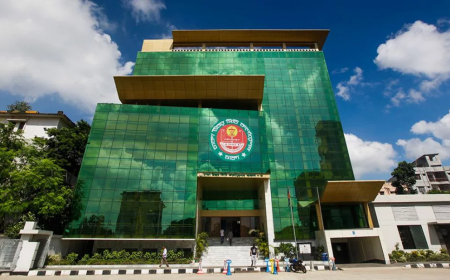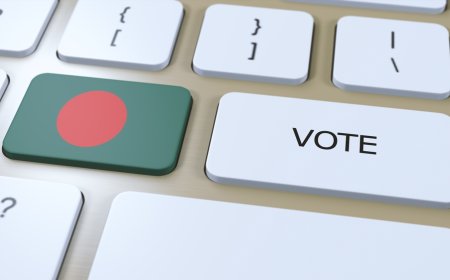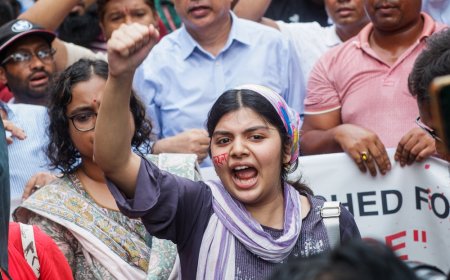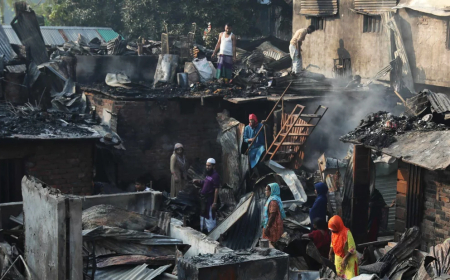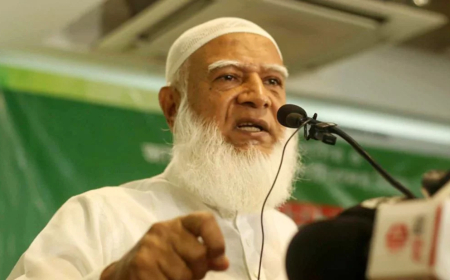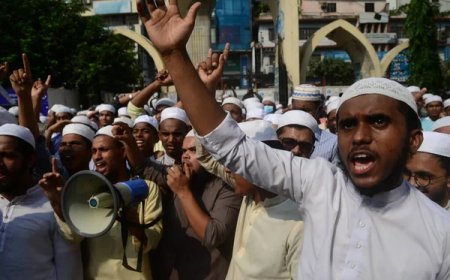When the State Becomes a Party and the Party Becomes the State
Whoever sits in power today must imagine themselves out of power tomorrow. If they cannot accept that thought, then their governance is not democracy but monarchy in disguise.

Power in the post-colonial world has always carried a strange, almost mystical aura.
In countries like Bangladesh, power behaves less like a constitutional responsibility and more like an inheritance of kingship. Whoever captures it becomes not just a custodian of state institutions, but their owner.
The country itself seems to bend, almost instantly, to their will. The administration, law enforcement agencies, bureaucracies, and even many sections of the judiciary begin to act as if they were extensions of the ruling party. Cases are filed and withdrawn, officials are transferred or promoted, and lives are destroyed or resurrected based on the whims of those who sit at the top.
It is an old script, repeated so many times that it has become banal, yet its consequences remain devastating.
The real mystery lies not in the spectacle of absolute power, but in the spectacle of absolute weakness. The same leaders who appear invincible while in office suddenly become irrelevant when out of power.
The party that yesterday commanded the entire state machinery today struggles to gather a modest procession on the streets. Leaders once surrounded by a coterie of obedient bureaucrats and loyal police officials now find themselves harassed by the very same forces. Lawsuits and arrests, once tools of their power, turn into weapons against them.
Some flee the country, some retreat into silence, some attempt desperate, symbolic shows of strength that convince no one. It is as though power in these countries is not institutional, but magical -- like a charm that vanishes when the crown slips from the head.
Why does this cycle repeat itself so faithfully in developing countries? Why does power so quickly corrupt those who hold it, and why does powerlessness reduce once-mighty parties to such helplessness? The answer, perhaps, lies in the hollowness of the very institutions that are meant to safeguard balance, accountability, and neutrality.
In a functioning democracy, state and constitutional institutions do not belong to parties or governments; they belong to the republic itself. Their duty is to serve every citizen equally, regardless of who holds power. When professionalism and institutional integrity are strong, governments may rise and fall, but the administration remains stable and neutral.
Leaders leaving office do not collapse into despair or persecution because they, like all citizens, remain protected by the rule of law. That is why in mature democracies, alternation of power does not provoke existential panic. Former presidents or prime ministers may be criticized, even investigated, but rarely do they lose all political space overnight.
In post-colonial countries like Bangladesh, however, institutions were never allowed to grow into such maturity. Since the 1950s and 1960s, administrative reform has been minimal, and the colonial legacy of governance has remained intact.
Laws and regulations crafted to maintain imperial control rather than protect civil liberties still govern much of statecraft.
The bureaucracy, instead of being modernized into a professional and independent service, has become a battleground of patronage.
Political leaders, even at the district or village level, often interfere in transfers, promotions, and postings of government officials.
The police and administration are routinely treated not as neutral guardians of the law, but as an extended arm of whichever party happens to be in power.
The result is a paradox. While in power, political parties appear omnipotent because the entire machinery of the state functions as their servant. But the moment they are out of power, they are stripped of that machinery and reduced to their bare organizational strength -- which, in most cases, is alarmingly weak. The true power was never in the party itself, but in the captured institutions. Without access to the state, the party becomes exposed, fragile, and vulnerable.
This cycle creates a culture of fear. Politicians know that once they lose power, they will likely face retribution from the next regime. That knowledge drives them to cling to power at any cost, deploying every tool of repression, manipulation, and corruption to prolong their rule.
They do not build institutions, because strong institutions would outlast them and limit their personal control. Instead, they deliberately weaken institutions to ensure that all authority flows through themselves. This short-term strategy ensures their dominance while in office but guarantees their humiliation once they fall.
Bangladesh provides a vivid case study of this phenomenon. Since independence, every ruling party has at some point treated the state as its private property. Each has enjoyed the loyalty of the bureaucracy, the obedience of law enforcement, and the complicity of many in the judiciary.
Each has also, in turn, experienced what it means to be abandoned by those same institutions once the tides turned. It is a cycle that erodes trust in democracy itself. Citizens watch as governments come and go, but their lives remain hostage to the same arbitrary authority. No one feels protected by the law, because the law itself changes color depending on the party in office.
The consequences are profound.
First, it undermines faith in politics. When citizens see that political parties behave almost identically once in power, switching allegiances becomes an act of survival rather than ideology. Patronage networks dominate local politics, where leaders wield influence over jobs, transfers, and benefits. Elections, instead of being a choice between visions of governance, become competitions over who will control the state’s machinery for the next few years.
Second, it creates a politics of revenge. Since every party knows it will be victimized once out of office, each is motivated to victimize others while it still can. Politics becomes less about policies or governance, and more about securing impunity and crushing opponents. The cycle of lawsuits, arrests, harassment, and counter-harassment becomes endless. The people suffer, while leaders trade places between persecutor and persecuted.
Third, it prevents long-term reform. Countries where institutions are captured and recaptured every election cycle cannot implement sustained policies for education, healthcare, or economic development. Each government replaces the priorities of the previous one, not out of ideological conviction, but out of spite. Administrative reforms that could insulate state institutions from partisan control are deliberately avoided, because no party wants to surrender its privilege of control when in power.
This is why post-colonial states remain so fragile, so easily destabilized, and so vulnerable to authoritarianism. The fragility is not merely a result of poverty or underdevelopment; it is a result of the deliberate refusal to build strong, impartial institutions. The colonial rulers designed their administrations to dominate, not to serve. The tragedy is that their successors adopted the same logic of domination rather than transforming it into a logic of service.
The way forward is not mysterious, but it is difficult. Political parties must recognize that the greatest guarantee of their survival is not in controlling the state machinery, but in ensuring its independence. If the bureaucracy, judiciary, and law enforcement remain neutral, then no party needs to fear persecution when out of power. If the rules of governance are applied consistently, then alternation of power will not mean humiliation and exile. This is not merely an ethical ideal; it is a pragmatic necessity for the stability of democracy.
The lesson is clear: whoever sits in power today must imagine themselves out of power tomorrow. If they cannot accept that thought, then their governance is not democracy but monarchy in disguise.
Bangladesh and other post-colonial states cannot hope to escape the cycle of weakness and domination until their leaders stop confusing the state with their personal fiefdoms. Institutions must be rebuilt, laws must be modernized, and professionalism must be valued over partisanship. Otherwise, the pendulum of power will continue to swing violently, crushing parties, leaders, and citizens alike under its motion.
Until then, the mystery will persist. Power will look invincible, yet be hollow; parties will appear mighty, yet collapse overnight. And the people -- always the people -- will remain trapped in the cycle, governed not by laws, but by the shifting fortunes of those who temporarily hold the crown.
H. M. Nazmul Alam is an Academic, Journalist, and Political Analyst based in Dhaka, Bangladesh. He can be reached at [email protected].
What's Your Reaction?












